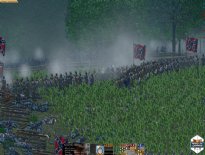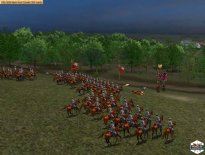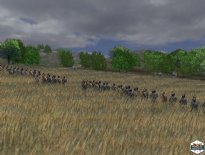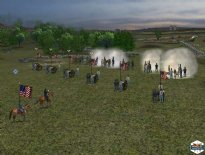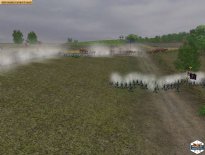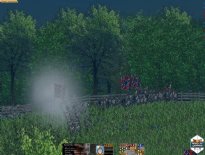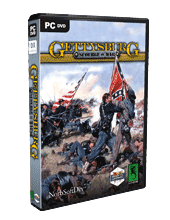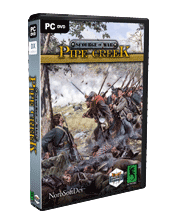Scourge of War is the definitive American Civil War grand tactical wargame of this generation. With impressive 3D graphics, an award-winning AI, pausable real-time play, historical battlefield terrain and orders of battle down to the regiment and battery level, Scourge of War captures the tactical challenges that faced the real Union and Confederate commanders more than 130 years ago.
In Scourge of War: Gettysburg, players will be able to take command of Union or Confederate forces in a rendezvous with history at the town of Gettysburg in July of 1863. Every engagement at Gettysburg has been meticulously researched and recreated, along with multiple “what if” scenarios to keep players on their toes. Featuring incredibly detailed battlefields created from four high-resolution maps with authentic and historic weather and battles, players will be able to experience history right on their computers.
Take Charge of some of the premier Generals that shaped America. See if your strategy can hand Lee the victory that was pulled from his grasp. Can you as Longstreet take out the Union left flank? Or will you stand as Chamberlain on Little Round Top and order “FIX BAYONETS!” Do you have what it takes to prove that Pickett's Charge could have resulted in anything besides the mass slaughter of Longstreet's Corps? Can you do better than history or have all the great Generals passed away with that bygone era?
Be sure to check out the expansions Pipe Creek, Antietam and Brandy Station



Historical Background
The Battle of Gettysburg took place July 1st-3rd in 1863 and became well-known as the turning point in the American Civil War. It was also the battle with the largest number of casualties during the war.
The Confederate General Robert E. Lee marched north with his Army of Northern Virigina after success at the Battle of Chancellorsville in May of 1863. Lee looked to invade the North through Pennsylvania, to Harrisburg or as far as Philadelphia. With this offensive, Lee hoped to not only take pressure off war-ravaged Virginia but to also influence the North towards suing for peace. Heading towards Gettysburg, Lee was set to find and destroy the Union Army of the Potomac commanded by the newly-appointed General George Meade. Lead elements of these armies encountered each other on July 1, 1863, and both forces rushed to gain the most advantageous ground.
By the second day both armies had fully arrived, with the Union Army forming a fishhook-shaped defensive line from Culp’s Hill and Cemetery Hill to Little Round Top. The Confederate Army assembled opposite them across open fields and wooded terrain. Fierce fighting took place in close-quarters on the Union’s left flank at Devil’s Den, the Wheatfield, and the Peach Orchard, with the Union soldiers hard-pressed and just able to hold the line. Terrible casualties were incurred by both sides.
The third and most important day hosted the amazing frontal assault by more than 12,000 Confederate soldiers in what became known as Pickett’s Charge on Cemetery Ridge. Known as the “high water mark” of the Confederacy, Pickett’s Charge ended up being repulsed by Union cannon and rifle fire with incredible losses. By the end of the day, both sides had sustained nearly 51,000 losses, with the Army of the Virginia on the retreat. Victory at Gettysburg along with the surrender of Vicksburg to the Union Army under General Grant on July 4, meant that the South suffered two setbacks that would turn the tide of war against them.



 Cart (0)
Cart (0)